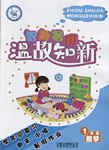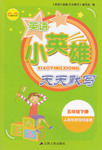题目内容
Sometimes I really doubt whether there is love between my parents. Every day they are very busy trying to 31 in order to pay the high tuition for my brother and me. They don’t act in the 32 ways that I read in books or I see on TV. In their opinion, “I love you” is too 33 for them to say. Sending flowers to each other on Valentine’s Day is even more out of 34.
One day, my mother was sewing a quilt. I sat down beside her. “Mom, I have a question to ask you. Is there _35 between you and Dad?” I asked her in a very low voice. She didn’t answer immediately. She 36 her head and continued to sew the quilt.
I was very worried because I thought I had _37_ her. I was 38_ and I didn’t know what I should do. But at last I heard my mother say the following words:
“Susan,” she said thoughtfully, “Look at this thread.Sometimes it __39_, but most of it disappears in the quilt. The thread really makes the quilt _40__. If life is a quilt, then love should be a thread.It can hardly be seen _41 , but it’s really there. Love is 42_.”
I listened carefully but I __43_ her until the next spring. At that time, my father suddenly _44 seriously. My mother had to stay with him in the hospital for a month. When they returned from the hospital, they both looked __45_. It seemed both of them had had a serious illness. After they were back, every day in the morning and dusk, my mother helped my father 46__ on the country road.
“Dad, how are you feeling now?” I asked him one day.
“Susan, don’t _47 me.” he said gently. “To tell you the truth, I just like walking with your mom.”_48_ his eyes, I know he loves my mother deeply.
Once I thought love meant flowers, gifts and 49 . But from this experience, I understand that love is just _50_ in the quilt of our life. Love is inside, making life strong and warm.
| 【小题1】 |
|
| 【小题2】 |
|
| 【小题3】 |
|
| 【小题4】 |
|
| 【小题5】 |
|
| 【小题6】 |
|
| 【小题7】 |
|
| 【小题8】 |
|
| 【小题9】 |
|
| 【小题10】 |
|
| 【小题11】 |
|
| 【小题12】 |
|
| 【小题13】 |
|
| 【小题14】 |
|
| 【小题15】 |
|
| 【小题16】 |
|
| 【小题17】 |
|
| 【小题18】 |
|
| 【小题19】 |
|
| 【小题20】 |
|
【小题1】D
【小题2】A
【小题3】B
【小题4】B
【小题5】C
【小题6】A
【小题7】A
【小题8】C
【小题9】D
【小题10】D
【小题11】D
【小题12】A
【小题13】C
【小题14】B
【小题15】C
【小题16】A
【小题17】B
【小题18】C
【小题19】D
【小题20】B
解析试题分析:文章通过一个温情的故事把爱比喻成缝被子的线,时隐时现,并不是一直表现在外。文章告诉我们真正的爱是相濡以沫,平平淡淡。
【小题1】考查词组:A.keep fit保持健康B.rise early早起 C.collect money 筹集钱D .earn money挣钱,每天他们忙着挣钱,为我和弟弟交学费。选D。
【小题2】考查形容词:A.romantic浪漫的B.magic 有魔力的C.fantastic美妙的 D.attractive有吸引力的,这里指父母的行为不像我在书里看见的那样的浪漫。选A。
【小题3】考查形容词:A.simple简单的,B.luxurious 奢侈的C.relaxing放松的, D.easy容易的,对他们来说,说我爱你,太奢侈了。选B。
【小题4】考查词组:out of question没问题,out of the question 不可能,out of reach够不着,out of control失去控制,这里是送花是不可能的。选B。
【小题5】考查上下文串联。根据下文可知我询问妈妈:在她何爸爸之间是否有爱?选C。
【小题6】考查动词:A.bowed弯下B.shook摇晃C.nodded点头D.raised抬起,这里指妈妈弯下头,继续缝被子。选A。
【小题7】考查动词:A.hurt伤害(身体或情感),B.injured受伤C.wounded 受刀伤,枪伤,D.harmed伤害,这里是作者害怕伤害了妈妈。选A。
【小题8】考查词组:A.in great surprise惊讶的,B.with deep depression压抑的, C.in a great embarrassment尴尬的,D . at extreme sorrow悲伤的,从后面的不知道怎么做,可知是尴尬的。选C。
【小题9】考查动词:A. happens发生B.comes about产生C.occurs 发生D.appears出现,这里指线有时会出现。选D。
【小题10】考查形容词:A.warm and soft温暖柔软B.hot and hard又热又硬C.thin and cool 薄又冷,D.strong and durable牢固耐用,指线使被子又牢固又耐用。选D。
【小题11】考查词组:A.more or less或多或少B.here and there到处C.somewhere and sometime有时,在某地 D .anywhere or anytime随时随地,指线不是随时随地都可以看见的。选D。
【小题12】考查副词:A.inside在里面B.outside在外面C.faraway遥远的D.nearby附近的,这里指爱是在里面的,选A。
【小题13】考查动词:A.could believe能相信B.wouldn’t recognize 不认识C.couldn’t understand不能理解,D.might know可以知道, 上下文串联。是在来年春天爸爸病了以后我才理解这一切。选C。
【小题14】考查词组:A.got stuck卡住了,B.got sick生病了,C.threw up呕吐D.became disabled残疾的,有一次,我爸爸病的很重。选B。
【小题15】考查形容词:A.quite healthy很健康B.fairly red 很红C.very pale非常苍白D.much surprised很惊讶,从后面的句子:可知两个人都很苍白。选C。
【小题16】考查动词短语:A.walk slowly慢慢走B.go hurriedly匆忙去 C.run fast快跑 D.jump high跳得高,上下文串联。指爸爸妈妈在路上慢慢地走。选A。
【小题17】考查词组:A.think about考虑B.worry about 担心C.talk with 和…谈话D.laugh at嘲笑,爸爸说:别担心我。选B。
【小题18】动词辨析。A.Saying说B.Seeing看见C.Reading读懂D.Writing写,Read理解。指我理解了爸爸的眼神。选C。
【小题19】考查名词辨析。以前我认为爱就是礼物花,和甜蜜的吻。故D正确。
【小题20】考查上下文串联。指爱就是线,正是这些线串联起生活。选B。
考点:考查人生百味类短文
点评:本文用父母之间的例子告诉我们什么是真正的爱?爱不是鲜花。爱是用行动来表示的。爱就是妈妈手中的线,在被子里若隐若现。答题前一定要读懂全文,弄清文章要表达的思想,注意前后段落之间的关系。答题中,一定要认真分析,注意选项与上下文的关系,与前后单词的关系。对于一时没有太大的把握的题可以放到最后再来完成,因为有时答案可以从下文内容体现出来。答完后再通读一篇文章,看看所选选项能不能是语句通顺,语意连贯。

 智趣暑假温故知新系列答案
智趣暑假温故知新系列答案 英语小英雄天天默写系列答案
英语小英雄天天默写系列答案
| Dear Expert: I was asked to retrieve my 14-year-old daughter from a five-day camping trip.She was suffering from such severe separation anxiety,her teacher thought she should go home.She hadn’t eaten anything and had refused to participate in any activities.The thing is my daughter is extremely bright and has many friends;she organized a few friends into a band,and it belongs to several school clubs.She’s just always had an extreme fear of being away from home.I don’t want her to miss out on other trips. Yours truly, Jonathan |
| Dear Jonathan: Sometimes kids can push through homesickness,but in other instances they become hurt mentally and develop greater anxiety around outings,which can worsen and prolong(延长) the problem.Separation anxiety can be the result of many complex interactions some genetic(遗传的) and some learned. People with high anxiety tend to be fearful and worried, ever when the sense of threat is minimum( 最低程度).Lots of talented,creative and successful people are exceedingly anxious. I believe your daughter is bright,active and popular,but simply can’t do well outside her home base.My suggestion is to take things in small steps,so your daughter can experience success,and always have a fallback(退却) plan if she needs it.For instance,she can plan an overnight with a friend,but assure her it’s no big deal to pick her up at midnight if she changes her mind. What’s important is to recognize the fear,and make plans to deal with whatever may cause distress.In other words,don’t try to talk your daughter out of her fears,equip her to master them.This way she’ll eventually gain the confidence to go on further trips. Expert |
What does the underlined word“retrieve”mean?
A.Go with someone. B.Take someone back.
C.Separate from someone. D.Miss someone.
Which of the following statements is TURE?
A. Separation anxiety is the result of different reasons.
B. Separation anxiety is genetic.
C.Only creative people suffer from separation anxiety.
D.Separation anxiety is of the same level.
When can’t the 14-year-old daughter function well?
A.When organizing a band at school.
B. When she is not far away from her home.
C.When she is in a club.
D. When she is camping far away from home.
 Robopets (机器人宠物) are high-tech robots programmed to play. They can communicate with their owners and recognize their voices. Each one will develop a different “personality”. They can be a lot of fun to play with, but these robots can also be helpful to people who are sick and can’t look after a real animal. Many doctors believe that when a person is happy and laughing, their body recovers faster. A robopet might be just what the doctor ordered.
Robopets (机器人宠物) are high-tech robots programmed to play. They can communicate with their owners and recognize their voices. Each one will develop a different “personality”. They can be a lot of fun to play with, but these robots can also be helpful to people who are sick and can’t look after a real animal. Many doctors believe that when a person is happy and laughing, their body recovers faster. A robopet might be just what the doctor ordered.